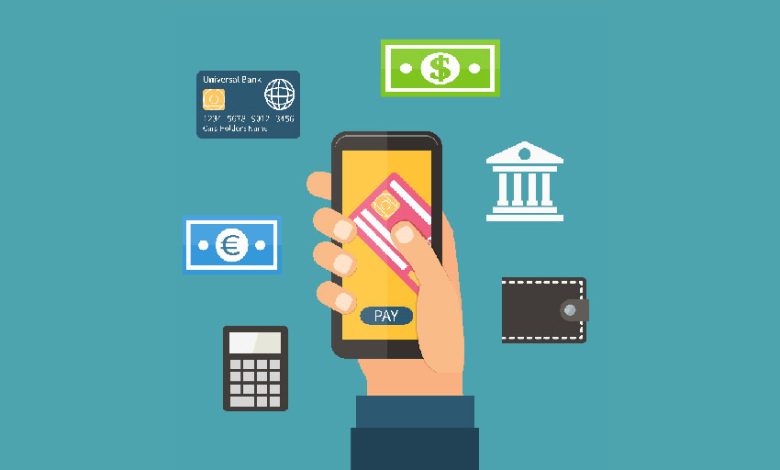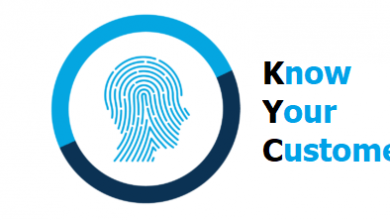Adoption of Mobile Wallets by Small and Large Businesses

A mobile wallet is a virtual wallet that allows individuals to store, manage, and transfer money through their mobile devices. It eliminates the need for physical cash and traditional payment methods such as checks and credit cards. With the growing popularity of smartphones and digital technology, mobile wallets have become increasingly popular in recent years.
Mobile wallets are transforming the way businesses operate and handle payments. With the increasing trend of digitalization, businesses are looking for ways to improve their payment processes, enhance customer experience, and increase profitability.
In this article, we will explore the adoption of mobile wallets by both small and large businesses. This includes an analysis of the challenges and benefits of using mobile wallets, as well as success stories from businesses that have adopted them.
Types of Mobile Wallets
There are three main types of mobile wallets: Peer-to-Peer (P2P) wallets, digital wallets, and mobile payment wallets.
Peer-to-Peer Wallets
Peer-to-peer payment app in the form of wallets allows individuals to transfer money directly to one another without the need for intermediaries such as banks. This type of mobile wallet is ideal for personal use and small transactions.
Digital Wallets
Digital wallets are virtual wallets that allow individuals to store, manage, and transfer money through their mobile devices. They can be linked to a credit card or bank account and can be used for online purchases, bill payments, and other transactions.
Mobile Payment Wallets
Mobile payment wallets are similar to digital wallets but are specifically designed for making payments at physical locations. These wallets use near-field communication (NFC) technology to make contactless payments.
How Mobile Wallets Work?

Setting up a Mobile Wallet:
To use a mobile wallet, a user has to download and install the mobile wallet app on their smartphone. The app is usually available for free on the App Store or Google Play Store.
Adding Payment Method:
Once the app is installed, the user needs to add a payment method, such as a credit card, debit card, or bank account. The user can either input the card details manually or scan a barcode to add the card.
Verify Account:
After adding a payment method, the user has to verify their account by providing their personal details, such as name, email address, and phone number. The user may also have to complete a two-factor authentication process for added security.
Making Payments:
Once the account is set up and verified, the user can start making payments using their mobile wallet. To make a payment, the user has to choose the payment method, select the amount to pay, and confirm the transaction.
QR Code Scanning:
Many mobile wallets have a QR code scanner that enables the user to make payments by scanning a QR code displayed by the merchant. The QR code contains the payment details, and the user doesn’t have to input any information manually.
Secure Transactions:
Mobile wallets use secure encryption to protect the user’s financial information during transactions. The user’s payment details are stored on a secure server and encrypted using SSL technology, making it difficult for hackers to access the information.
Recharge and Bill Payments:
Some mobile wallets also allow users to recharge their mobile phone balance, pay utility bills, and make other types of payments directly from the app.
View Transaction History:
The user can view a history of all their transactions on the business app, including the date, time, amount, and merchant name. This helps users to keep track of their spending and monitor their financial goals activity.
Receiving Payments:
Some mobile wallets also allow users to receive payments from other users. The recipient can simply provide their mobile wallet ID to the sender, who can then make the payment directly from their mobile wallet app.
Benefits of Using Mobile Wallets for Businesses
Mobile wallets offer a range of benefits for businesses, including
Increased Efficiency in Payment Transactions:
Mobile wallets make payment transactions faster and more efficient, reducing the time and effort required for traditional payment methods.
Enhanced Customer Experience:
Mobile wallets offer a more convenient and user-friendly experience for customers, making it easier for them to complete transactions. This leads to increased customer satisfaction and loyalty.
Improved Security:
Mobile wallets use advanced password encryption and security measures to protect user information and transactions, reducing the risk of fraud and security breaches.
Cost-Effectiveness:
Mobile wallets eliminate the need for expensive payment processing systems and reduce the cost of traditional payment methods such as credit card processing fees. This leads to increased profitability for businesses.
Challenges Faced by Small Businesses in Adopting Mobile Wallets
Small businesses face several challenges in adopting mobile wallet, including
Lack of Technical Knowledge:
Many small businesses lack the technical knowledge and expertise required to implement and effectively use mobile wallets.
Cost of Implementation:
The cost of implementing a mobile wallet can be prohibitive for small businesses, especially for those with limited resources.
Limited Customer Base:
Small businesses with a limited customer base may find it difficult to justify the cost of implementing mobile wallets, as they may not see a return on investment in the short term.
Despite the challenges, many small businesses have successfully adopted mobile wallets and are reaping the benefits. These success stories demonstrate the positive impact that mobile wallets can have on small businesses, including increased efficiency, improved customer experience, and increased profitability.
Benefits of Mobile Wallets for Large Businesses:

Large businesses can experience several benefits from adopting mobile wallets, including
Improved Customer Engagement:
Mobile wallets can enhance the customer experience, making it easier and more convenient for customers to complete transactions. This leads to increased customer satisfaction and engagement.
Enhanced Payment Security:
one of the many features of mobile wallets is to offer advanced security measures to protect payment transactions, reducing the risk of fraud and security breaches.
Increased Profitability:
Mobile wallets can increase efficiency, reduce costs, and streamline payment processes, leading to increased profitability for large businesses.
Case Studies of Large Businesses that have Adopted Mobile Wallets:
There are several well-known large businesses that have successfully adopted mobile wallets, including
Starbucks
Starbucks has integrated mobile wallets into its payment process, allowing customers to make purchases and access loyalty rewards through their mobile devices. This has improved the customer experience and increased efficiency for the company.
Walmart
Walmart has also adopted mobile wallets to enhance the customer experience and increase efficiency in its payment processes. This has helped the company stay competitive in the fast-paced retail industry.
Amazon
Amazon has integrated a mobile wallet into its payment process, offering customers the convenience of completing transactions through their mobile devices. This has improved the customer experience and increased efficiency for the company.
The Future of Mobile Wallets in Large Businesses
The adoption of mobile wallets is expected to continue to grow in large businesses, as they seek to improve efficiency, reduce costs, and enhance the customer experience. In the future, mobile wallets are likely to become even more integrated into businesses’ payment processes, leading to increased adoption and use by large businesses.
Conclusion
Mobile wallets offer numerous benefits to businesses, including increased efficiency, enhanced customer experience, improved security, and cost-effectiveness. Small businesses may face challenges in adopting mobile wallets, but success stories and government initiatives highlight the potential benefits for them. Large businesses have already begun to adopt mobile wallets to improve customer engagement, enhance payment security, and increase profitability.




